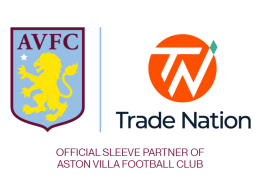Putting up a website can require a lot of work, time, and investment. And it’s understandably frustrating when you realize that your website loads slowly when it finally goes live. So don’t let the hard work you’ve put into creating your website go to waste with a slow loading speed. Your site’s visitors will more than likely abandon your site when it takes several seconds to load.
Aside from a high bounce rate, a slow loading speed will affect your search engine optimization (SEO) rankings. Also, it will result in poor conversions and an unsatisfactory user experience for your site’s visitors. And these results are exactly the opposite of what you should expect from an excellently built website.
So, why does your website take forever to load? Below are some of the usual reasons why, so you can fix your loading speed. And once you fix it, a seemingly minute issue that’s often overlooked, then almost every other issue will most likely be solved, too.
Flash Content
One of the common culprits of a slow-loading site is the heavy use of Flash content. Understandably, Flash content can be one way of attracting your target audience’s attention. Entertaining Flash content can increase engagement, and therefore, entice your visitors to stay longer on your site. However, that was then since Flash contents can be too large. They can take a toll on your website’s loading speed. Today, there are other alternatives for Flash content, like HTML5. And most internet browsers don’t support Flash content anymore.
Excessive Plug-ins and Widgets
Plug-ins and widgets can be fun, especially when you’re the one doing the designing of your WordPress site. However, sometimes, overdoing plug-ins and widgets can be a cause for a slow-loading website. Though we can’t undermine the importance of these tools, having too many can wreak havoc on your visitors’ user experience. The essential thing to remember is to use only what’s necessary and trim away all the excesses. That way, you’ll have a website that’s clean and uncluttered with a fast loading speed to boot.
Ads Everywhere
Aside from bringing in paying customers, a website can also bring in revenue in the form of ads. Ads are a good thing since they bring in money to your business. However, they come with a price. And you pay for them by sacrificing your website’s loading speed. Too many ads, especially rich media ads, aren’t just annoying to your visitors, they can also dampen visitors’ user experience. If you can, you can try limiting the number of ads you show to improve your speed.
No Cached Memory
Cached memory stores the website files that are often used. That way, the website files are easily retrievable compared to the long process of file retrieval and transmission before they get displayed on a webpage. If you haven’t already, you should give caching a try so you can increase your site’s loading speed.
Large Media Files
Incorporating different types of media into your website is understandable since they can increase visitor engagement. They make your website more interesting compared to just filling your web pages with lines of unending texts that your visitors probably won’t finish reading. However, the downside of large media files is that they come in large sizes. Furthermore, the better the quality of the media, the larger the file size becomes. Optimize your media files before you put them up on your web. You can use tools to resize them or convert them to other compressible formats.
Poor Hosting Service
Sometimes the fault of your site’s slow loading times can be because of your web host. If your web hosting service has many issues, like frequent downtimes, and takes too long to address and fix them, then that can be a problem. That’s why investing in a web hosting service that offers quality service is important. Make sure that they have capable customer service and tech support, as well as limited downtimes. That way, you’re sure that their tech issues won’t trickle down to your site.
Your Internet Connection
If your website has been built by industry pros and they’ve patched up everything that needs to be patched up, and yet it still loads slowly on your computer, maybe you should check your internet connection. There are plenty of reasons why internet connections tend to slow down. It can be faulty hardware, like old modems or malfunctioning routers, or there can be a problem with your IP address. Sometimes, it can also be that it’s time for you to switch to a new internet service provider (ISP).
Too Much HTTP-Requesting Elements
Every element of your website makes an HTTP request when a user visits your site. That’s why having too many elements on your web page will result in too many HTTP requests, thus delaying your website loading speed. It’s best to have only the necessary elements on a web page and minify and optimize files as much as possible.
Absent Content Delivery Network (CDN) Service
A content delivery network (CDN) service can help in increasing your website loading speed, especially if you cater to visitors all over the world. A CDN service will quickly deliver your web pages to users based on their location. Generally, your web pages are cached on data centers globally. So the web pages get delivered faster to users all around the globe through the data centers that are near their location. That way, no matter where your visitors are from, the time it takes for the web page to load is cut in half since the data won’t have to be routed from the country that the website was set up in.
Final Thoughts
A slow-loading website can cost you in terms of audience conversion and engagement. Plenty of internet users have short attention spans. And that means they are less likely to patiently wait for a website to load for several seconds when they can just hit the “back” button and look for other sites that load instantly. And now that you know what to look out for to increase your loading speed, you can now sit back and watch your incoming traffic make an upward trajectory.
Cheeky Monkey provides one of the best web design services. We won’t just improve your site loading speed, we’ll also ensure that your website is optimized and get all the engagement you need and more.









